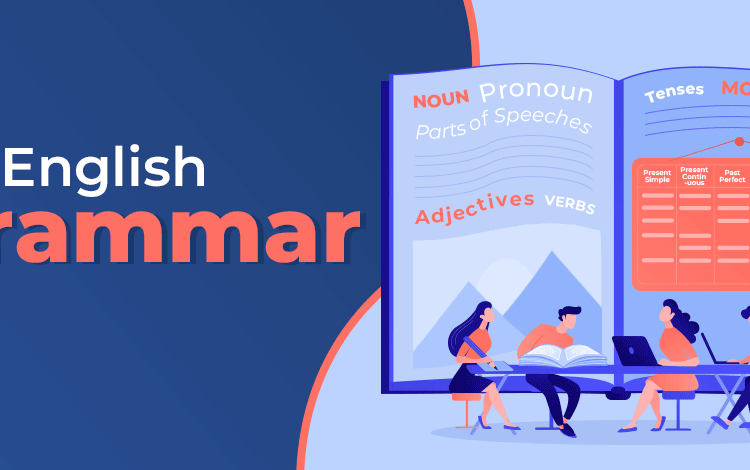Mastering the appropriate usage of words in various contexts can be a significant challenge for individuals learning English as a second language. Given the widespread use of English for international communication, achieving proficiency in the language holds substantial personal and professional benefits, irrespective of one’s native language. However, the intricacies of English grammar often present formidable obstacles for new learners.
WIDESPREAD ENGLISH GRAMMAR MISTAKES:
1) Am/I’m:
This is coming first because ‘Am and I’m’ are the grammar points that people often use wrongly. “I’m” and “am” serve distinct purposes in the English language. “I’m” is a contraction that stands for the pronoun “I” and the verb “am”. It is used to combine these two words into a single, more informal form. On the other hand, “am” is the verb on its own, with no pronoun preceding it.
In English grammar, it is significant to note that it is not considered grammatically correct to omit the pronoun “I” and start a phrase with “am”. Proper English requires the pronoun to come before the verb. Therefore, using the contraction (I’m) maintains the grammatical structure by incorporating the pronoun “I” before the verb “am”.
Choosing to use the contraction (I’m) offers a less formal, yet still correct, way to express oneself in English. This informal form is commonly used in everyday speech and informal writing.
Examples:
* I’m a man NOT am a man.
* I’m not sure NOT am not sure.
* I am all right NOT am all right.
2.) Your/You’re:
The words ‘your’ and ‘you’re’ are frequently confused homophones in English.
‘Your’ is a possessive determiner, indicating ownership or possession. On the other hand, ‘you’re’ is a contraction of the words ‘you are’, combining the pronoun ‘you’ with the verb ‘are’ into a single, more informal form.
It’s very important to realize the distinction between these two terms in usage. When referring to something that belongs to the person being spoken to, such as “Is this your book?”, the word ‘your’ is appropriate.
Conversely, when expressing a state of being or an action related to the person being spoken to, such as “I think you’re right”, the contraction ‘you’re’ is used.
3). There/Their/They’re:
The words ‘there’, ‘their’ and ‘they’re’ are homophones in English, often causing confusion due to their similar pronunciation. However, understanding their distinct meanings is essential for precise use.
* ‘There’ is used to indicate a place or location, as in “Please put the book over there.”
* ‘Their’ is a possessive determiner, denoting ownership by a group of people, as in “The students lost their notebooks.”
* ‘They’re’ is a contraction of the words ‘they are’ and is used to express the state of a group of individuals, as in “I think they’re going to join us.”
It’s noteworthy for English learners to grasp the differences in meaning and usage among these three terms to communicate effectively in various contexts.
4) Confusion with Similar Spelling and Words
The English language is replete with words that either sound alike or have close spellings but convey distinct meanings.
This linguistic characteristic presents a considerable challenge for both learners and native speakers.
For instance, consider the words ‘affect’ and ‘effect’ which are often confused due to their similar spellings and pronunciations.
‘Affect’ is typically used as a verb denoting influence or change, as in ‘The weather will affect our plans’. Conversely, ‘effect’ is commonly employed as a noun representing a result or consequence, as in ‘The new policy had a significant effect on productivity.‘
Here are some words people often mix up:
Two, too and to
Here and hear
Your and you’re
Weather and whether
Eminent and imminent
Farther and further
Envelop and envelope
5.) Confusing adjectives with adverbs
Confusing adjectives and adverbs can impact the formality and correctness of speech and writing, often leading to an informal or uneducated impression. This tendency can also be a source of frustration for many English teachers.
One common area of confusion occurs with words that end in “-ly,” as these words are typically adverbs. It’s okay to note that adjectives modify nouns or pronouns, while adverbs modify verbs, adjectives, or other adverbs.
Consider the following grammatically incorrect examples:
* It was a real nice day today.
* I ran quick to the bus stop.
In these instances, the adjectives “real” and “quick” are mistakenly used instead of the corresponding adverbs “really” and “quickly.”
To rectify these errors and ensure grammatical accuracy, the correct usage would be:
– It was a ‘really’ nice day today.
– I ran ‘quickly’ to the bus stop.





